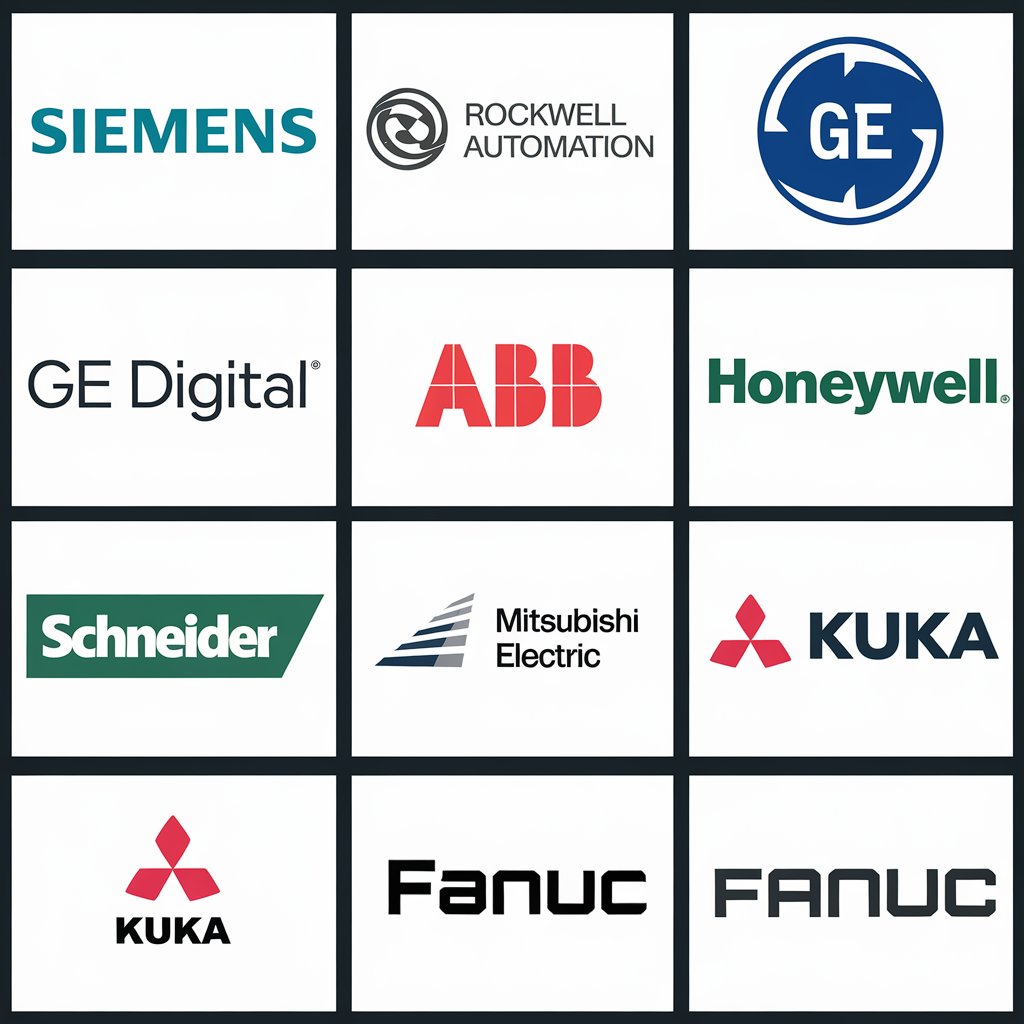The manufacturing industry in North America is experiencing a significant transformation, driven by technological advancements that promise to boost productivity, optimize operations, and enhance competitiveness. At the forefront of this revolution is the integration of Artificial Intelligence (AI) into Manufacturing Execution Systems (MES). AI-powered MES platforms are transforming the way manufacturers operate, enabling real-time decision-making, predictive maintenance, and the seamless management of production processes.
Get More Information:
https://www.marketsandmarkets.com/pdfdownloadNew.asp?id=536

This article explores the role of AI in Manufacturing Execution Systems, its impact on the North American manufacturing landscape, and why investing in AI-powered MES is becoming essential for companies looking to stay competitive in a rapidly evolving market.
What is a Manufacturing Execution System (MES)?
A Manufacturing Execution System (MES) is a software platform that monitors and controls manufacturing operations on the factory floor. It manages and tracks the transformation of raw materials into finished products, providing real-time data to optimize production, quality control, and inventory management. By integrating AI into MES, manufacturers can enhance automation, improve decision-making, and achieve unprecedented levels of efficiency.
The Role of AI in Modernizing MES
Traditional MES platforms have long been essential for managing production workflows, but the integration of AI technologies takes their capabilities to a new level. AI-enhanced MES systems can process massive amounts of data from various sources, such as machines, sensors, and operators, and use this data to make intelligent, real-time decisions. This allows for predictive analytics, advanced automation, and a more agile response to production challenges.
Key Features of AI-Enhanced MES:
- Predictive Maintenance: AI can analyze historical machine data to predict when equipment is likely to fail, allowing manufacturers to perform maintenance before breakdowns occur, minimizing downtime and saving costs.
- Real-Time Optimization: AI algorithms analyze real-time data to optimize production schedules, machine usage, and resource allocation, ensuring maximum productivity.
- Advanced Quality Control: AI-powered MES systems can identify quality issues early in the production process by analyzing sensor data, reducing defects and waste.
- Data-Driven Decision Making: AI can process and interpret large datasets, enabling manufacturers to make informed decisions quickly and efficiently.
Why North American Manufacturers are Investing in AI-Driven MES

As the global manufacturing landscape becomes more competitive, North American manufacturers are increasingly investing in AI-driven MES to enhance their operational capabilities. Several factors are driving this shift, including the need to reduce operational costs, improve production efficiency, and meet growing demand for customized products.
1. Increased Operational Efficiency
- AI-powered MES systems help manufacturers optimize every aspect of production, from raw material procurement to final product assembly. By providing real-time data insights and automating key processes, manufacturers can eliminate inefficiencies, reduce cycle times, and increase output. This leads to higher profitability and the ability to meet market demands faster.
- For example, in industries such as automotive or electronics, where precision and speed are crucial, AI-driven MES can dynamically adjust production schedules and minimize bottlenecks, leading to more efficient use of machinery and labor.
2. Predictive Maintenance and Reduced Downtime
- One of the most significant advantages of AI-driven MES is its ability to predict equipment failures before they happen. Traditional MES platforms rely on reactive maintenance, which can lead to unexpected downtime and costly repairs. In contrast, AI uses historical data and machine learning algorithms to forecast potential issues, allowing manufacturers to schedule maintenance at optimal times.
- For North American manufacturers, particularly in heavy industries such as aerospace and automotive, avoiding unplanned downtime can save millions of dollars in lost productivity and repair costs.
3. Improved Product Quality
- AI-enhanced MES systems are also improving product quality by enabling manufacturers to detect defects earlier in the production process. By analyzing data from sensors and production equipment, AI can identify patterns that signal potential quality issues. This allows manufacturers to take corrective action immediately, reducing waste and ensuring that final products meet high-quality standards.
- This is particularly important in industries like pharmaceuticals or food and beverage, where quality control is critical to both consumer safety and regulatory compliance. AI-driven MES systems help manufacturers maintain consistent product quality while reducing the cost of non-conformance.
4. Customization and Agility
- Today’s market demands greater product customization and flexibility. AI-powered MES platforms enable manufacturers to quickly adjust production lines to accommodate changes in customer demand or product design. This agility is crucial in sectors such as consumer electronics, where product lifecycles are short, and manufacturers must respond quickly to market trends.
- By using AI to manage complex production schedules and inventory in real time, manufacturers can better meet customer demands for personalized products while minimizing lead times and production costs.
5. Sustainability and Cost Reduction
- AI-enhanced MES platforms are also helping manufacturers achieve sustainability goals. By optimizing resource usage, reducing waste, and improving energy efficiency, AI-driven MES systems enable companies to reduce their environmental impact while cutting costs. For example, AI can optimize energy usage across production lines, leading to significant savings in utilities, which is critical in energy-intensive industries like metalworking and chemical manufacturing.
Revenue Impact of AI-Driven MES in North American Manufacturing

The adoption of AI-driven MES systems is proving to be a game-changer for North American manufacturers, particularly in terms of revenue growth. Here’s how AI-powered MES is positively impacting business revenues:
1. Reduced Downtime and Operational Costs
- Predictive maintenance capabilities provided by AI-enhanced MES lead to a significant reduction in unplanned downtime. This directly translates to lower operational costs and improved production efficiency. By minimizing disruptions, manufacturers can maintain consistent output levels, ensuring that revenue streams remain stable and production targets are met.
2. Higher Throughput and Productivity
- AI-driven MES systems enable manufacturers to optimize machine usage and reduce idle time, leading to higher production throughput. With faster production cycles and more efficient use of resources, companies can increase their output without needing to invest in additional equipment or labor, resulting in higher profit margins.
3. Enhanced Product Quality and Fewer Defects
- By improving quality control through AI analysis of production data, manufacturers can reduce the number of defective products, which lowers the cost of rework and scrap. This not only improves profitability but also enhances customer satisfaction and brand reputation, which are crucial for maintaining a competitive edge in industries like consumer goods and automotive.
4. Greater Flexibility and Market Responsiveness
- AI-powered MES systems provide manufacturers with the agility needed to respond to market changes quickly. This means companies can adapt their production processes to meet new demands without compromising efficiency. In industries where product customization is a key differentiator, AI-driven MES can open up new revenue streams by enabling mass customization at scale.
5. Data Monetization Opportunities
- With the wealth of data collected and processed by AI-driven MES systems, manufacturers can leverage this information to improve not only their own operations but also offer data-driven insights to third parties. For instance, companies can partner with suppliers or logistics providers to share predictive maintenance data or operational performance metrics, creating new revenue opportunities through data monetization.
Market Growth and Investment Outlook
The North American AI-powered MES market is expected to see significant growth over the next decade, driven by the increasing demand for automation and digital transformation in manufacturing. According to market research, the global MES market is projected to reach $20 billion by 2027, with AI-driven systems playing a crucial role in this expansion.
Several industries, including automotive, aerospace, electronics, and pharmaceuticals, are at the forefront of adopting AI-driven MES technologies due to the complex nature of their production processes and the need for precision and efficiency. As more manufacturers recognize the financial and operational benefits of AI integration, the demand for AI-powered MES platforms is expected to surge.
Investing in AI-Powered MES is Essential for Future Growth
The integration of AI into Manufacturing Execution Systems represents a monumental shift in how North American manufacturers operate. By improving efficiency, reducing downtime, enhancing product quality, and enabling greater agility, AI-powered MES platforms offer manufacturers a competitive edge in an increasingly challenging market.
For companies looking to invest in cutting-edge technology to stay ahead, AI-driven MES systems provide a clear path to increased revenue, lower operational costs, and improved customer satisfaction. As AI continues to evolve, the future of manufacturing in North America will be defined by how effectively companies leverage this technology to transform their operations and capture new growth opportunities.
